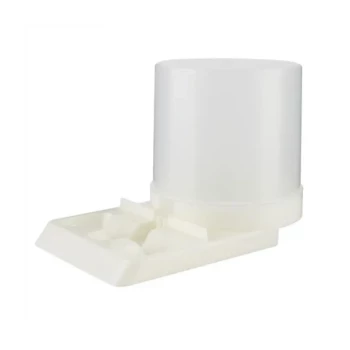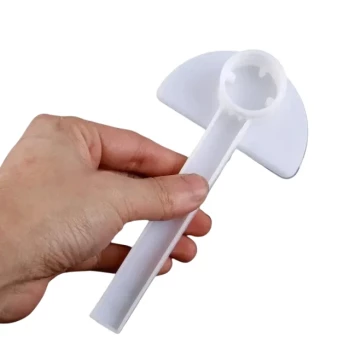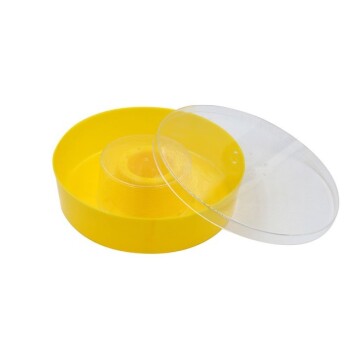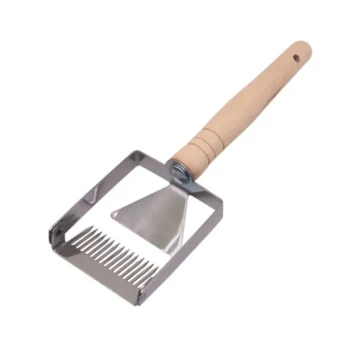The chief advantage of using a double nuc system in winter is shared warmth. By housing two smaller colonies side-by-side, separated only by a thin divider, the bees can cluster against this shared wall. This arrangement allows them to pool their metabolic heat, creating a more stable and survivable thermal environment than either colony could achieve alone.
Overwintering small nucleus colonies is inherently risky due to their limited ability to generate heat. The double nuc system directly mitigates this risk by enabling two separate colonies to function as a single, more resilient thermal unit, significantly increasing their collective chance of survival.
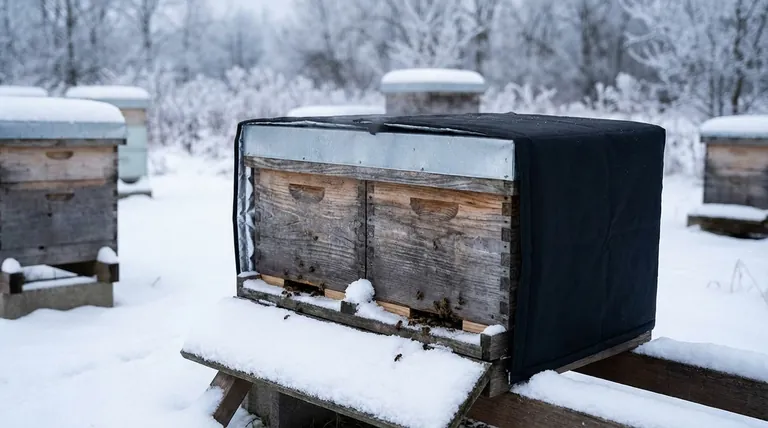
The Core Principle: Shared Thermal Efficiency
A honeybee colony's primary job in winter is to maintain the temperature of its central cluster, protecting the queen and ensuring survival. This is an energy-intensive task that becomes exponentially harder for smaller populations.
The Challenge for a Small Colony
A standard nucleus colony, or "nuc," has a small population. This creates a significant disadvantage in winter because the cluster has a high surface-area-to-volume ratio, causing it to lose heat to the surrounding air very quickly.
Fewer bees also means less collective power to generate heat by vibrating their flight muscles, forcing them to burn through their honey stores at a much faster rate.
How the Double Nuc Changes the Equation
The double nuc box is a simple but highly effective solution. It places two independent nucs into a single, standard-sized hive body, separated by a thin wooden divider.
The bees in both colonies naturally gravitate toward the warmest point in their enclosure, which is the shared central wall where their neighbors are also clustered.
This effectively allows the two small, separate clusters to function as one larger thermal mass. They are still two distinct colonies, but they benefit from the pooled heat that passes through the divider, reducing the overall energy needed from each one.
The Practical Advantages for Beekeepers
Leveraging this shared efficiency provides tangible benefits for apiary management and long-term goals.
Increased Survival Rates
The most direct advantage is a higher probability of survival. Two colonies working together to stay warm are far more resilient to sudden temperature drops and prolonged cold snaps than two identical colonies housed in separate, isolated boxes.
More Efficient Resource Consumption
Because the colonies are not fighting the cold alone, their metabolic effort is lower. This translates directly to reduced honey consumption over the winter months.
For the beekeeper, this means a lower risk of colonies starving and less need for emergency winter feeding.
Preserving Valuable Queens and Genetics
The double nuc system is an excellent tool for overwintering late-season splits or newly raised queens. It provides a protected environment for smaller colonies that would otherwise be too weak to make it through winter on their own, safeguarding valuable genetic stock for the next season.
Understanding the Trade-offs
While effective, the double nuc system is not without its considerations. It is a specific tool for a specific purpose, not a universal replacement for a strong, full-sized hive.
A Shared Fate
The primary drawback is that the colonies become interdependent. If one colony perishes for any reason, the surviving colony immediately loses its "heating partner."
This sudden loss of shared warmth can put the remaining colony under immense stress, potentially causing it to fail as well. The dead colony can also become a site for moisture, mold, and pests.
Not a Cure for a Weak Colony
This system is designed to help healthy but small colonies survive. It cannot save a colony that is going into winter with a high mite load, disease, a failing queen, or insufficient food stores.
Success depends on starting with two viable, healthy nucs. The system helps with thermodynamics, not pathology.
How to Apply This to Your Apiary
Your decision to use a double nuc system should be based on your specific operational goals for the coming season.
- If your primary focus is increasing colony numbers: The double nuc is an extremely effective way to overwinter late-season splits and maximize the number of viable colonies you have for spring.
- If your primary focus is preserving valuable genetics: This system provides the best possible odds for keeping a prized queen in a small colony alive through the winter.
- If your primary focus is minimal winter intervention: A large, healthy, single-queen colony remains the most self-sufficient and robust unit for overwintering and may be a better fit than managing multiple nucs.
By leveraging the principle of shared warmth, you can use the double nuc as a strategic tool to preserve assets and strengthen your apiary for the season ahead.
Summary Table:
| Advantage | Key Benefit |
|---|---|
| Shared Warmth | Two colonies pool heat, creating a stable thermal environment. |
| Increased Survival | Higher probability of surviving cold snaps and temperature drops. |
| Efficient Resource Use | Reduced honey consumption, lowering risk of starvation. |
| Genetic Preservation | Excellent for overwintering valuable late-season queens and splits. |
Ready to strengthen your apiary's winter strategy?
HONESTBEE supplies commercial apiaries and beekeeping equipment distributors with the durable, high-quality supplies needed to implement successful systems like the double nuc. From nuc boxes and dividers to essential wintering equipment, we provide the tools for resilient beekeeping.
Contact our wholesale experts today to discuss your apiary's needs and ensure your colonies thrive through the winter.
Visual Guide
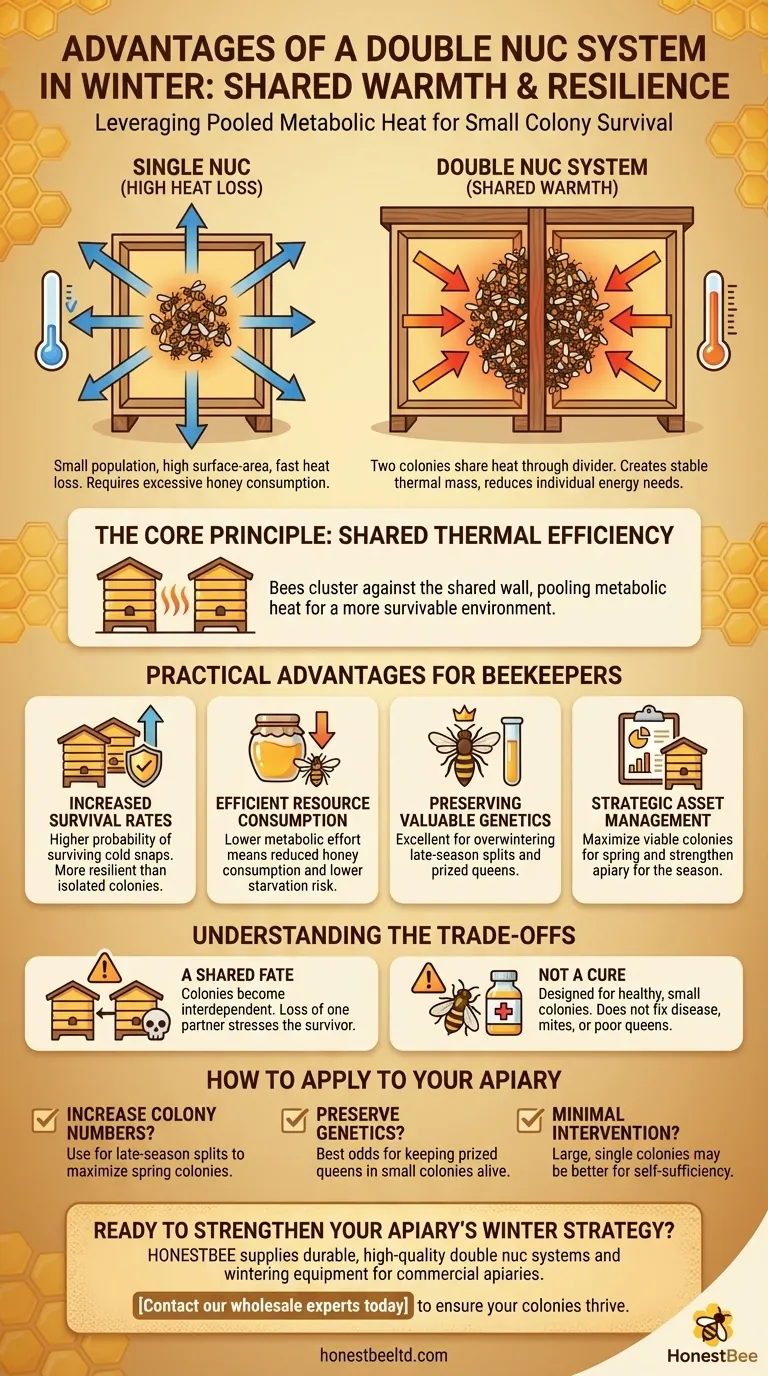
Related Products
- Professional Insulated Winter Hive Wrap for Beekeeping
- Professional Insulated Plastic Bee Hives
- HONESTBEE Entrance Bee Feeder Professional Hive Nutrition Solution for Beekeeping
- Wholesales Dadant Size Wooden Bee Hives for Beekeeping
- Long Langstroth Style Horizontal Top Bar Hive for Wholesale
People Also Ask
- What are the seven most common reasons people use nucs in beekeeping? Boost Apiary Health & Productivity
- For what purpose is a 2-frame nucleus hive considered sufficient? The Essential Tool for Queen Mating Efficiency
- What role does the Wooden Nucleus Hive play in colony splitting? Boost Success with Better Thermal Insulation
- What are the benefits of housing a nucleus colony within a standard deep hive body? Accelerate Growth & Reduce Stress
- How long does it take for a nucleus hive to establish and thrive? Achieve a Productive Colony in 8-12 Weeks
- What is the advantage of using a nucleus to hive a swarm or cast? Boost Swarm Success with a Nuc Box
- Why are 6-frame small hives preferred over standard 10-frame hives? Optimize Your Bee Mating Success Rates
- What is the technical process for creating a nucleus colony (nuc)? A Pro Guide to Successful Apiary Splits


